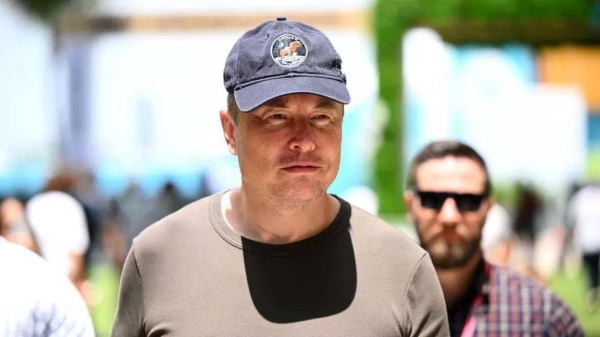
Elon Musk should face “personal sanctions” and even the threat of an “arrest warrant” if found to be stirring up public disorder on his social media platform, a former Twitter executive has said.
It cannot be right that the billionaire owner of X, and other tech executives, be allowed to sow discord without personal risks, Bruce Daisley, formerly Twitter’s vice-president for Europe, Middle East and Africa, writes in the Guardian.
He said the prime minister, Keir Starmer, should “beef up” online safety laws and reflect on whether the media regulator, Ofcom, “is fit to deal with the blurringly fast actions of the likes of Musk”.
“In my experience, that threat of personal sanction is much more effective on executives than the risk of corporate fines,” Daisley writes, arguing such sanctions could impact the jet-setting lifestyles of tech billionaires.
The UK government has called on social media platforms to act responsibly after violent unrest swept through the UK following the fatal stabbing of three young girls at a Taylor Swift-themed holiday dance class in Southport last month. The prime minister has blamed social media companies for allowing the spread of false claims that the attacker was an asylum seeker and police are increasingly going after those suspected of using online posts to incite violence.
In one post, Musk wrote: “civil war is inevitable” in the UK, language that the justice minister, Heidi Alexander, described as “unacceptable”. Musk has called Starmer “two-tier Keir” and a “hypocrite” over his approach to policing. Musk also shared a false post suggesting Starmer was planning to set up “detainment camps” in the Falkland Islands, a post he later deleted.
Daisley, who worked at Twitter, now X, from 2012-2020, describes Musk as someone who “has taken on the aura of a teenager on the bus with no headphones, creating lots of noise”.
He adds: “Were Musk to continue stirring up unrest, an arrest warrant for him might produce fireworks from his fingertips, but as an international jet-setter it would have the effect of focusing his mind.”
“Musk’s actions should be a wake-up call for Starmer’s government to quietly legislate to take back control of what we collectively agree is permissible on social media,” he argues.
Daisley says: “The question we are presented with is whether we’re willing to allow a billionaire oligarch to camp off the UK coastline and take potshots at our society. The idea that a boycott – whether by high-profile users or advertisers – should be our only sanction is clearly not meaningful.”
He continues: “In the short term, Musk and fellow executives should be reminded of their criminal liability for their actions under existing laws. Britain’s Online Safety Act 2023 should be beefed up with immediate effect.”
Referring to X’s algorithm, which he said prioritised Musk’s own tweets, he writes: “Musk might force his angry tweets to the top of your timeline, but the will of a democratically elected government should mean more than the fury of a tech oligarch – even him.”
Ofcom should have the right to demand certain voices, “like Tommy Robinson’s, are deplatformed”, he argues.
He continues: “Despite the attempts to position ‘free speech’ as a philosophical conviction, the reason for its popularity among tech firms is pure and simple – it is cheap.
“The approach taken by tech firms is less about deeply held principles and more about money – as evidenced by the growing support for Trump in the San Francisco venture capital community.
“We’ve hesitated from labelling tech billionaires as oligarchs because the likes of Bill Gates, Mark Zuckerberg and Jack Dorsey wielded their political power gently. Asking oligarchs to be accountable for what their platforms permit is straightforward and entirely possible.”












